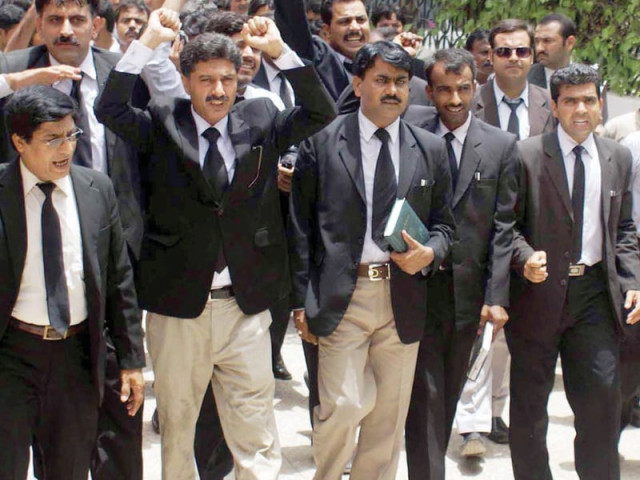Low conviction rates
The state is failing miserably in its duty to hand down justice to those who have thrown the country into anarchy.

Low conviction rates
Take the judiciary, which after all is a reflection of Pakistani society as a whole. Given that, it would be fair to presume that there may be some, who may have a soft spot for the militants because of a shared ideology and world view. Of course, an impartial judge, much like an impartial journalist, is supposed to ensure that his personal opinions do not impinge on his professional work. After all, what is one supposed to make of a former chief justice of the Lahore High Court choosing to take up the appeal of Mumtaz Qadri, who was convicted by a court for the murder of Salmaan Taseer. There is also the issue of threats to judges. In the same Qadri case, after the judge gave his verdict, his courtroom was ransacked by a group of lawyers and he had to go on leave. And to date, no one has yet to be arrested and charged for the vandalism.
Then there are the law-enforcement agencies which have proven that they are not up to the task of carrying out proper investigations. The police are helpless, either because of pressure or incompetence and add to that, the there are intelligence agencies which are unable to gather evidence that would be admissible in a court of law. If the figures can be turned around, that could prove to be a crucial factor in winning the war against militancy and extremism in Pakistan.
Published in The Express Tribune, October 18th, 2011.















COMMENTS
Comments are moderated and generally will be posted if they are on-topic and not abusive.
For more information, please see our Comments FAQ